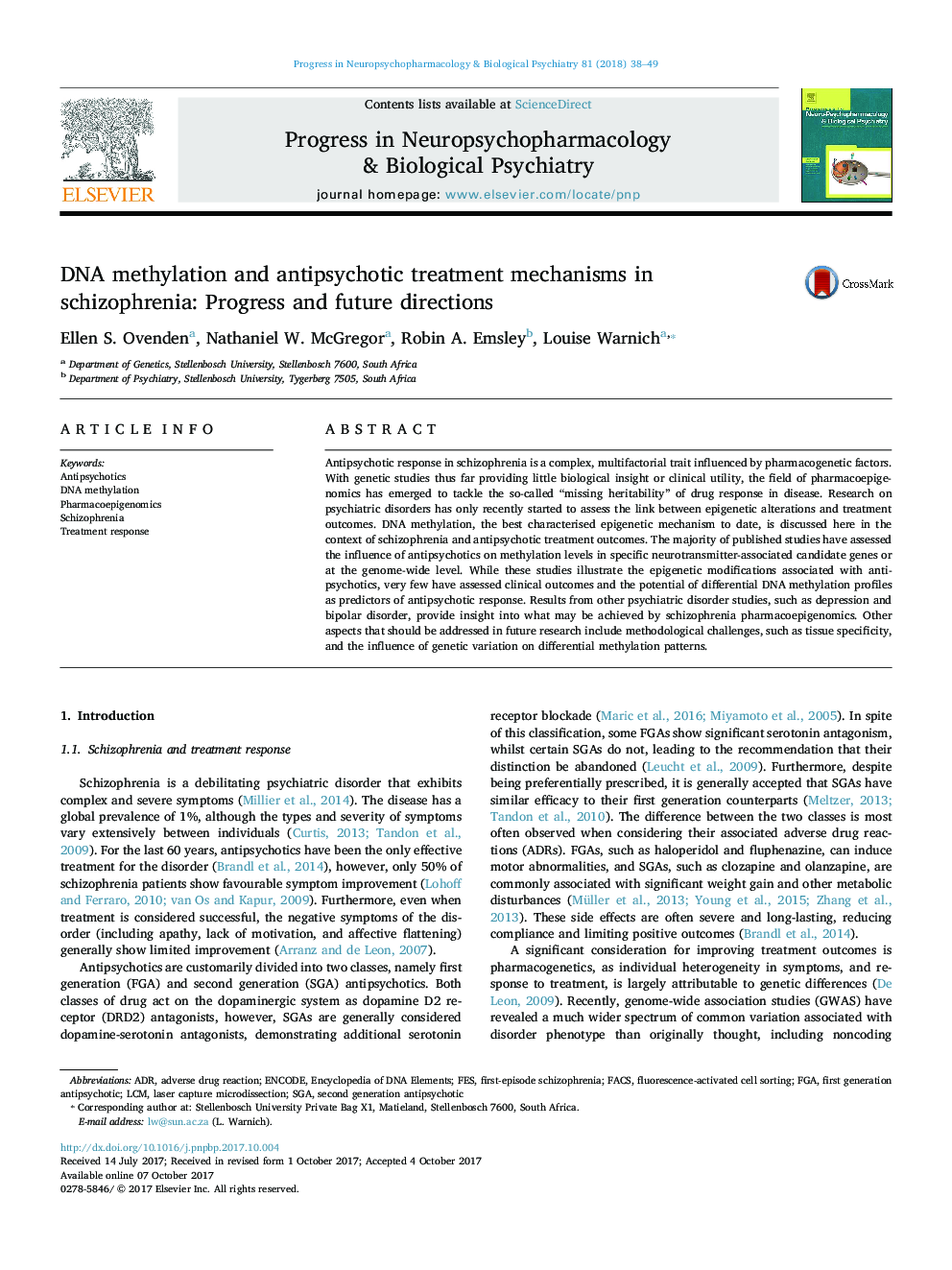| Article ID | Journal | Published Year | Pages | File Type |
|---|---|---|---|---|
| 5557886 | Progress in Neuro-Psychopharmacology and Biological Psychiatry | 2018 | 12 Pages |
â¢Antipsychotics both act upon and are influenced by DNA methylation in schizophrenia.â¢Studies have focused on the serotonergic, dopaminergic, and GABAergic systems.â¢Many complex factors, including genetic variation, influence DNA methylation.â¢DNA methylation shows promise as an antipsychotic response biomarker.â¢Recommended epigenetic studies could point to targets for epidrug development.
Antipsychotic response in schizophrenia is a complex, multifactorial trait influenced by pharmacogenetic factors. With genetic studies thus far providing little biological insight or clinical utility, the field of pharmacoepigenomics has emerged to tackle the so-called “missing heritability” of drug response in disease. Research on psychiatric disorders has only recently started to assess the link between epigenetic alterations and treatment outcomes. DNA methylation, the best characterised epigenetic mechanism to date, is discussed here in the context of schizophrenia and antipsychotic treatment outcomes. The majority of published studies have assessed the influence of antipsychotics on methylation levels in specific neurotransmitter-associated candidate genes or at the genome-wide level. While these studies illustrate the epigenetic modifications associated with antipsychotics, very few have assessed clinical outcomes and the potential of differential DNA methylation profiles as predictors of antipsychotic response. Results from other psychiatric disorder studies, such as depression and bipolar disorder, provide insight into what may be achieved by schizophrenia pharmacoepigenomics. Other aspects that should be addressed in future research include methodological challenges, such as tissue specificity, and the influence of genetic variation on differential methylation patterns.
